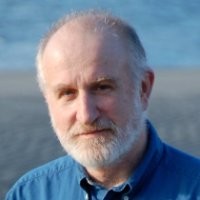I don’t know about other Propeller Clubs, but the Seattle chapter continues to be an active, lively organization. Over the years I’ve eaten many plates of salmon and salad while chatting with other members of the maritime industry. It’s also one of those midday occasions when many members enjoy a beer or glass of wine ... or two.
The monthly meetings are always “sponsored” by members who can simply introduce themselves or make a more detailed pitch. The sponsor for January was the WorkBoat Maintenance & Repair Conference and Expo, the second of which is coming up in April. Since I’m still associated with WorkBoat — although mostly retired — I was happy to give the spiel. I was also asked to moderate a three-person panel talking about challenges and opportunities for regional shipyards and boatbuilders. The panelists were Jim Meckley, one of Kvichak Marine’s founders and now a vice president at Vigor, Matt Nichols of Nichols Brothers Boat Builders, and Joe Hudspeth of All American Marine in Bellingham, Wash.
Unlike some shipyards in the Gulf, those here in the Pacific Northwest are still enjoying a strong market. Nichols has so much work that it turned down the construction of another superstructure for Washington State Ferries. The yard is currently at work on the third such project — and a fourth in the series has now been funded — but they can’t squeeze it in. Instead, the superstructure will be built at Vigor’s Seattle yard, where all of the hulls have been built.
Hudspeth also announced that later this year his company will be moving into a brand new shop closer to downtown Bellingham, where they will be able to build and launch more and bigger aluminum catamarans.
Vigor is also doing well with both new construction (ferries, a fireboat, towboats for the Columbia and Snake rivers, foreign military sales) and traditional repair work.
One of the big challenges that all three agreed on was regulations, especially environmental. Even so, Nichols extolled his company’s stormwater treatment system that has become a model praised by both state and federal regulators.
Fred Felleman, an environmental consultant and the newest member of the Seattle Port Commission, challenged the panel’s objections, essentially saying that Nichols’ environmental improvements and other such success stories would never have happened without the push of regulation.
Felleman’s comments were in turn challenged vociferously by Doug Dixon of Pacific Fishermen Shipyard, a repair facility on Seattle’s Ship Canal. He said his yard has been trying to get a dredge permit for work under one of their floating drydocks, but foot-dragging by the Corp of Engineers has prevented the project from going forward.
“You want to talk about the effect of environmental regulations? I’ll talk about the effect of environmental regulations all you want,” Dixon said.
At that point, Charlie Costanzo, the current Seattle Propeller Club president and the American Waterways Operators' Pacific Region vice president, stepped in, concluded the discussion and adjourned the lively meeting.
On their way out, luncheon attendees were encouraged to pick up discount cards for the Maintenance & Repair Show and a free WorkBoat 2016 Calendar with pictures from last year’s photo contest. (Very nice, by the way.)



